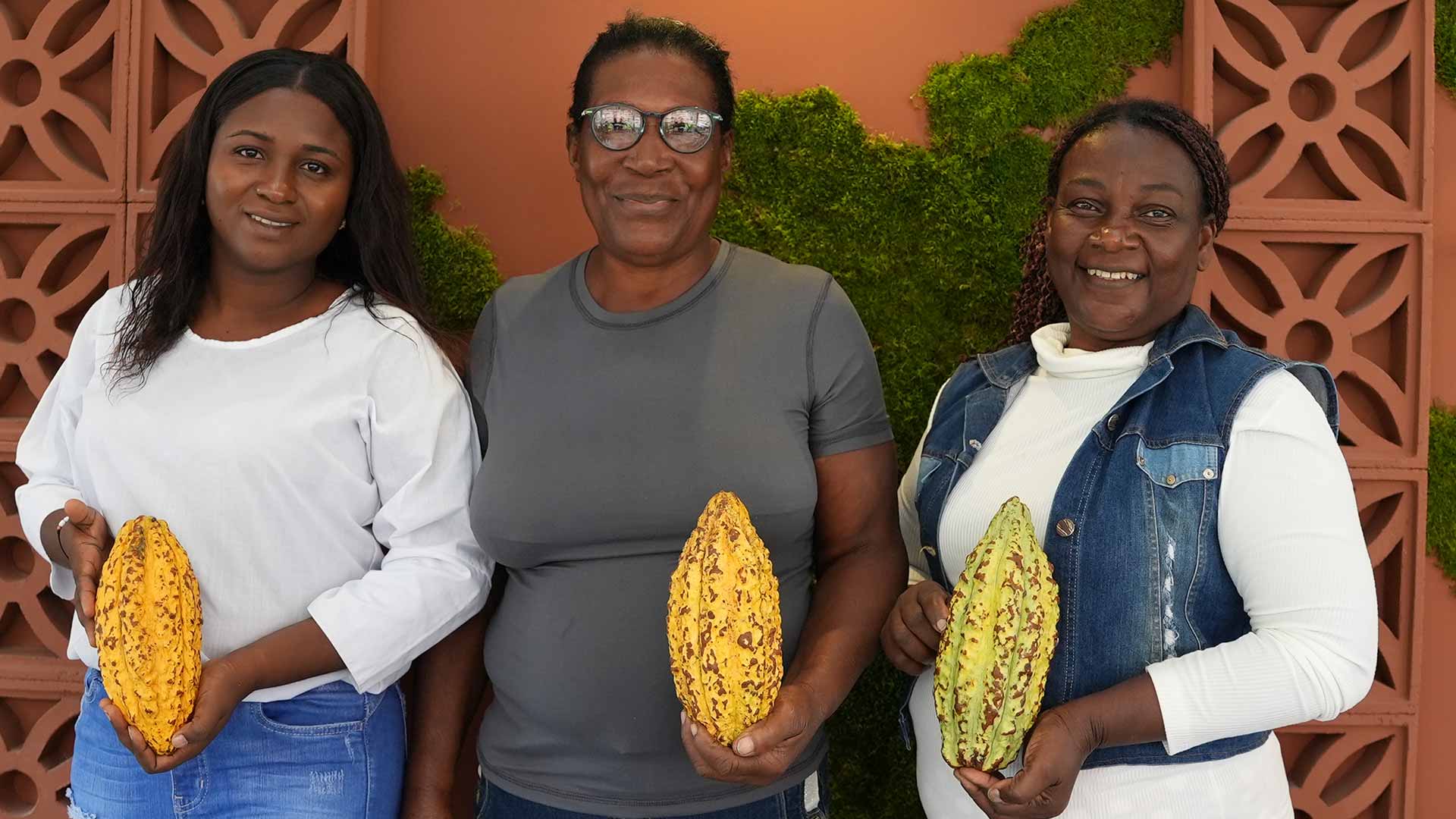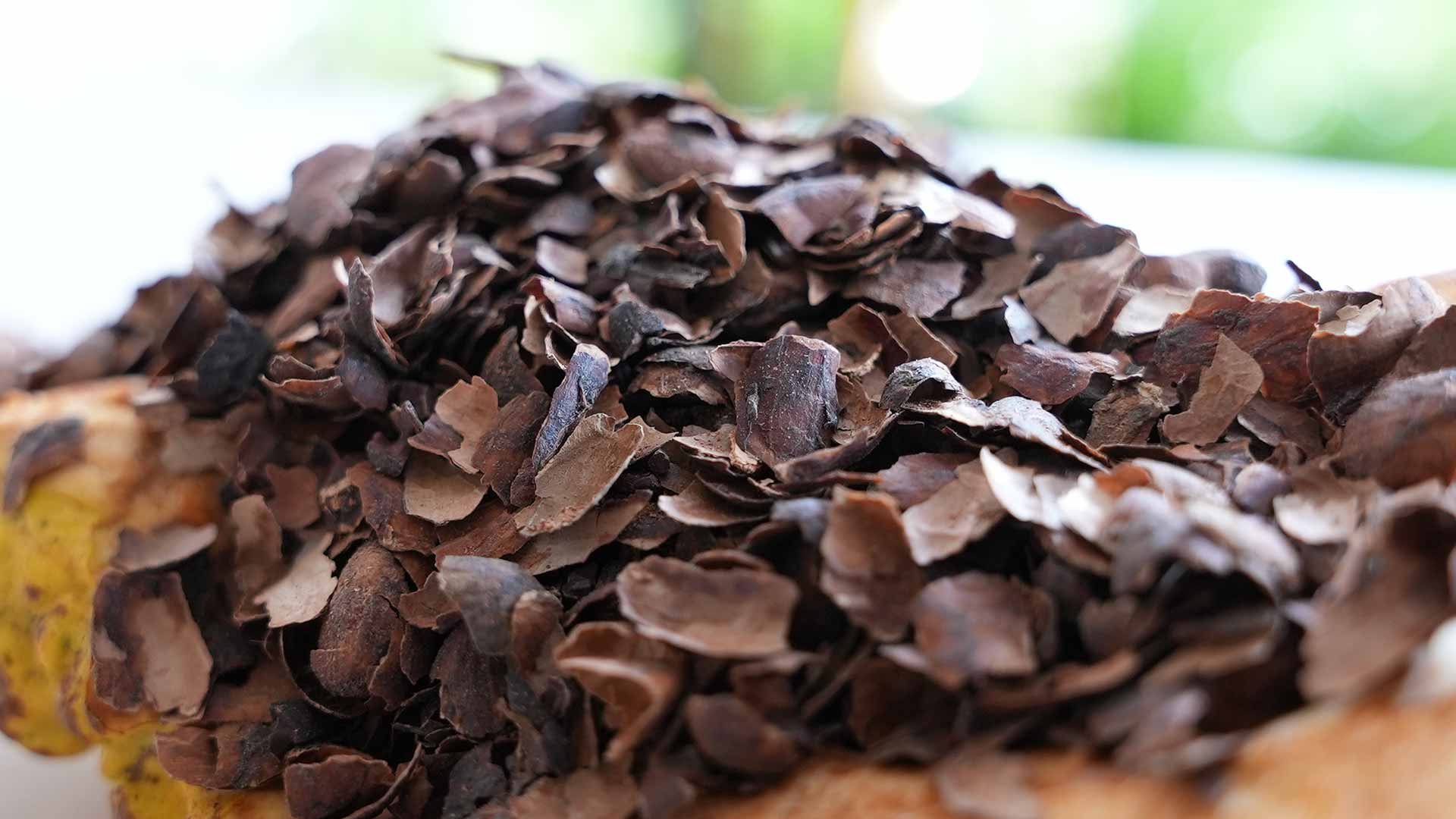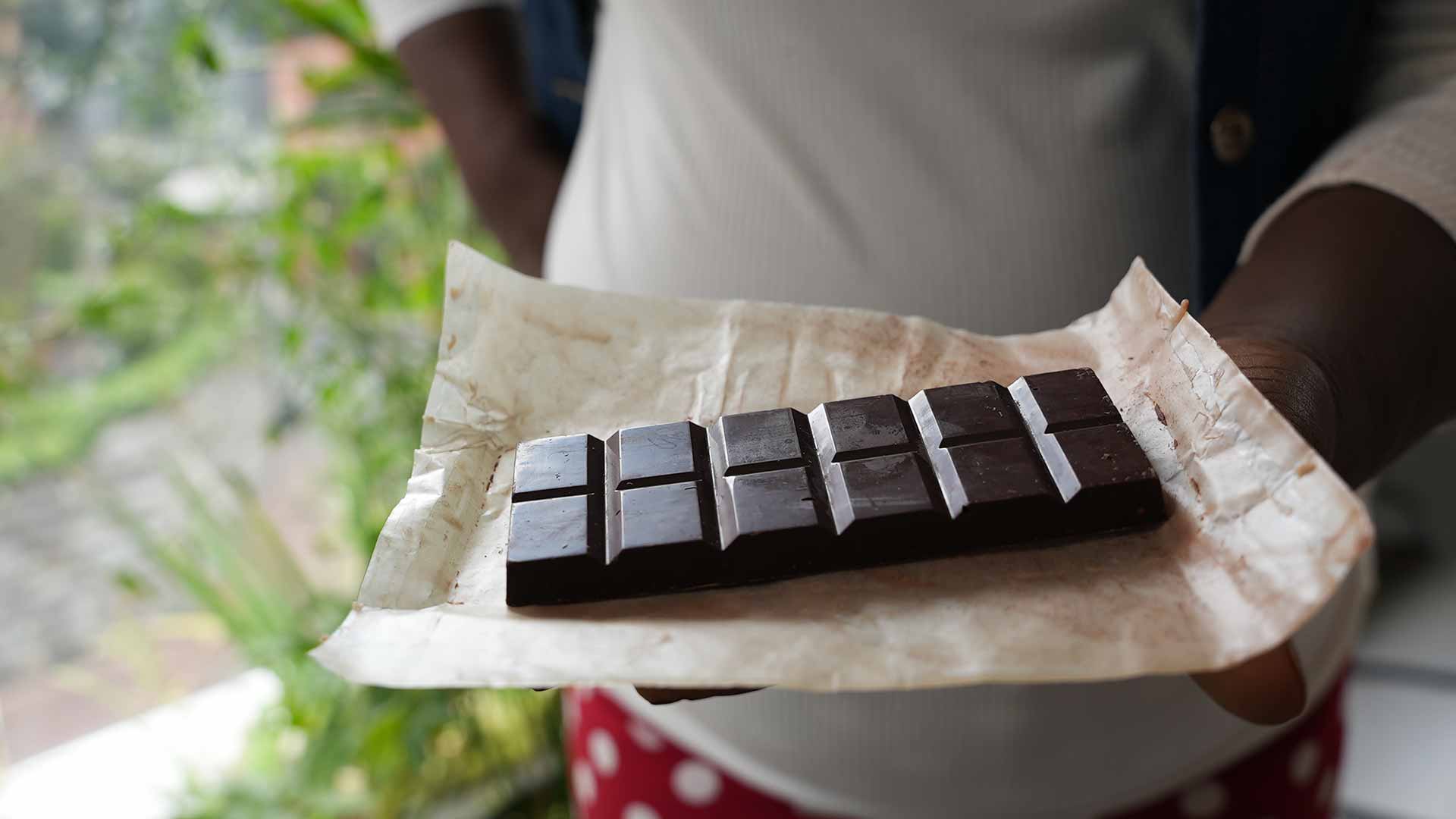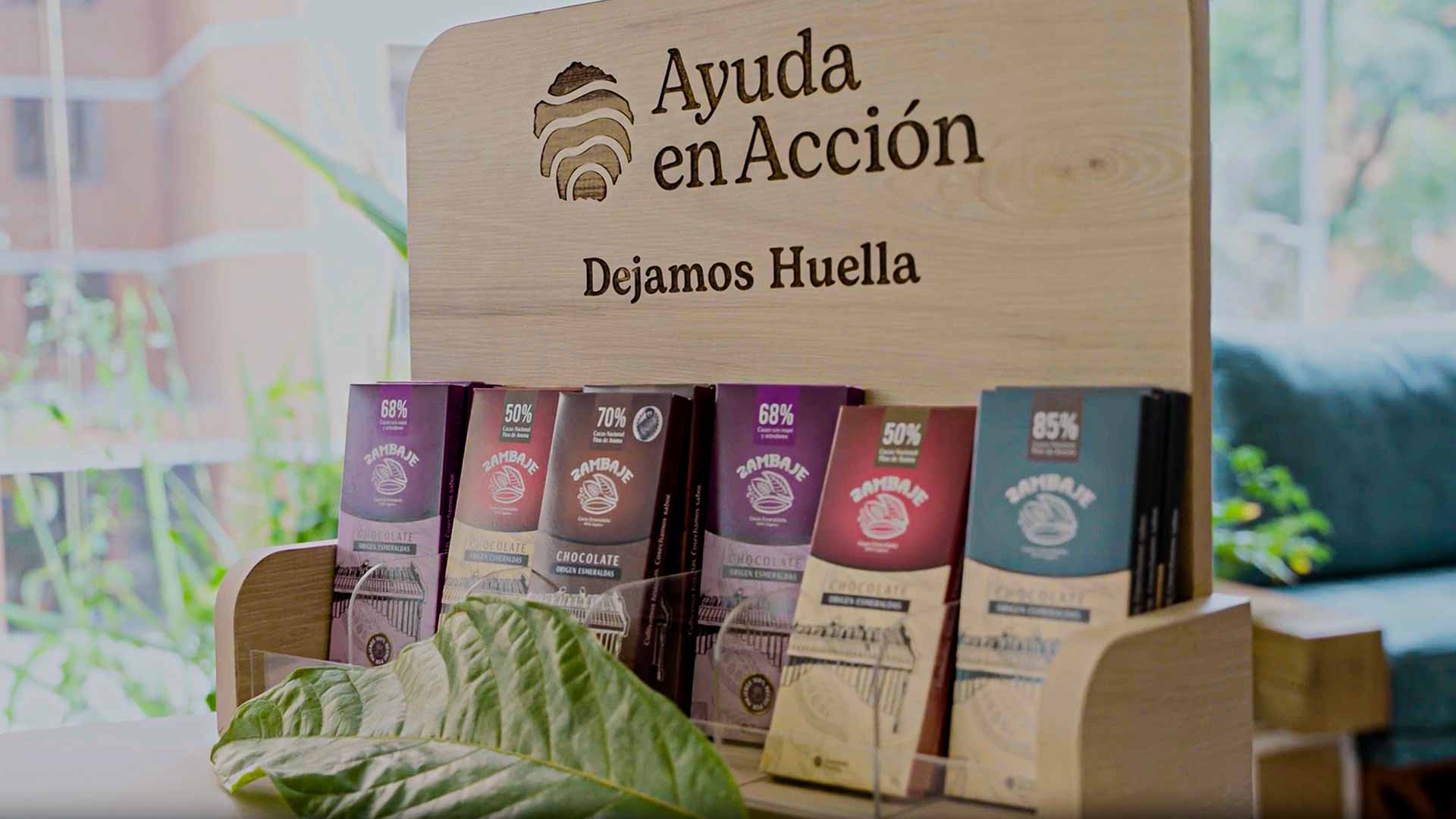
Cocoa underpins a circular economy in Ecuador’s Esmeraldas province
However, in the province of Esmeraldas, a cocoa cooperative and an international organization called Ayuda en Accion have come up with a clever solution to minimize their environmental impact. The small team of entrepreneurs transforms cocoa seed residues into organic packaging. The Plastic Odyssey team had the opportunity to meet three women from the cooperative, Viviana, Liliane and Virginia, and learn about their crucial role in the cocoa industry.

A cooperative that saves lives
APROCANE is a cooperative that has been in existence for over 40 years, enabling young people in the region, particularly women, to get involved in cocoa production. Such is the case of Viviana, mother of two daughters, including a 15-year-old, who overcame a difficult childhood. For her, being part of the cooperative represents an exceptional opportunity to rebuild her future, by finding a rewarding and fulfilling profession:
“Belonging to an organization of such stature is a great opportunity for me. It also helps solve the problem of youth crime in the northern province of Esmeraldas. It’s also great to see that our product, from the underprivileged rural area, is finding its way to the big metropolis. This gives us a legitimate sense of pride.” emphasizes Viviana Mesa.

The plant-based packaging is made from cocoa seed residue powder, beeswax and food-grade paper. The process of impregnating edible paper with cocoa powder and beeswax produces an airtight wrapper that preserves chocolate just as well as conventional plastic packaging. What’s more, this process requires less energy to produce, costs much less to produce and can be reused in the manufacture of agricultural fertilizers.
The international organization Ayuda en Accion then imported the concept to Ecuador, enabling the Esmeraldas chocolate cooperative to create its own ecological packaging.

“I’m very proud to be a woman entrepreneur and cocoa producer. I can also see the changes since the cocoa packaging project. We used to see a lot of plastic bags and packaging abandoned on the streets, but now we hardly see any at all. The people of Esmeraldas are becoming increasingly aware.” Virginia Borja tells us.

A circular economy model
Beyond material innovation, the cooperative perfectly embodies the principle of the circular economy. By including disadvantaged young people in chocolate production, the whole community benefits from this abundant natural resource, creating not only employment, but also training and social inclusion. By maximizing the use of every part of the cocoa, from seed to shell, the cooperative reduces losses and increases revenues, while respecting the environment and generating more local jobs.
The partnership between the community of Esmeraldas, the cooperative and the Spanish non-profit organization is a fine example of the importance of international collaboration in the search for sustainable solutions to preserve our planet while supporting local communities.

Key figures
This pilot project has already replaced over 350 plastic wrappers in chocolate bars since 2023. The cooperative intends to increase this number over the next few years to achieve 100% natural packaging.
